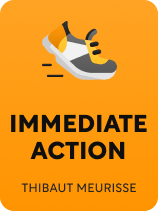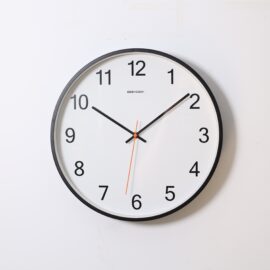

This article is an excerpt from the Shortform book guide to "Immediate Action" by Thibaut Meurisse. Shortform has the world's best summaries and analyses of books you should be reading.
Like this article? Sign up for a free trial here.
How do outside distractions prevent us from getting work done? Why is a routine the best way to improve your focus?
One of the reasons we procrastinate is that we have trouble focusing on what we need to be doing. Immediate Action by Thibaut Meurisse says that sometimes we’re overstimulated, distracted, or otherwise unable to pay complete attention to the task at hand.
Continue reading to learn how to improve your focus with a routine.
Cultivate Your Ability to Focus
Meurisse contends that being in the wrong mental space can keep us from immersing ourselves in our work and focusing on the work we need to get done. Before getting into how to improve your focus, you need to understand the two different mental experiences that interfere with our ability to work productively.
First, overstimulation—the experience that your brain or senses are overwhelmed by all of the things demanding your attention—is common when we can access addictive social networks or an endless loop of YouTube videos at all times. Meurisse writes that even worse, the need to divert ourselves with these activities feels more compelling the more we indulge it. Second, distraction comes in the form of tasks that feel productive but prevent you from making progress on more important tasks. (For example, your email inbox might feel urgent but can distract you from tasks that are much more critical to your goals.)
(Shortform note: We all have trouble focusing. Chris Bailey, author of Hyperfocus, writes that our brains are even “wired for distraction.” But like Meurisse, Bailey believes that it’s not just distraction, but also overstimulation, that hurts our focus. The modern world is so stimulating that we change our focus on average every 40 seconds. Each time, our brain is rewarded with a hit of dopamine, a chemical that makes us feel good. To increase your attention span, you have to decrease this overstimulation of your brain. Bailey advises deleting unnecessary apps, using software that blocks the internet, or leaving your phone in another room. By reducing demands on your attention, you can focus more and accomplish more of what you intend to do.)
There’s a simple solution that can help with overstimulation, distraction, and other issues with focus, according to Meurisse: building an effective routine. He writes that procrastination has become a habit for many of us. But by building a daily routine, you can intentionally cultivate habits that help you to get your work done on a timely basis.
Ideally, you should build a pre-work routine that you can complete at the same place and time each day. The routine will signal to your mind that it’s time to focus on your work. For example, you might get a glass of ice water and open the windows in your home office to get your mind into “work” mode. Meurisse also recommends that you begin work right away after completing your routine (preferably on the most important task that you need to complete that day so you don’t get sidetracked by less critical projects). The sense of accomplishment you feel after you finish that task will motivate you through the rest of your day.
| Does Creating a Routine Really Work? You’ve heard the advice to create a routine countless times. But do routines really work? Scientists say yes. When you start a new routine, parts of the brain that learn patterns and process rewards kick into gear. As you repeat the routine, you signal to your brain that the activities are important. So your brain learns that getting them done feels good. It eventually learns to respond automatically when you begin the routine, which increases your focus, reduces stress, and might even boost your sense of purpose. One expert notes that a good routine can also help you make the most of your time. When you have a routine to get yourself into the state of mind that’s conducive to work, you reduce the likelihood that you’ll be distracted or multitasking while you’re trying to get through your to-do list. In addition, a good routine can make a calming start to your day, preparing you for the work you need to do and helping you feel more capable of handling any challenges that arise unexpectedly. An effective routine might even help you get a jump on your most important tasks, as Meurisse recommends. Brian Tracy, author of Eat That Frog!, also advises that you begin your day with the highest-priority item on your to-do list. He explains that this helps you start your day with a boost of endorphins, hormones that increase your sense of well-being. But consistently tackling your most important task first can also make you feel happier with your productivity over longer periods of time. That feeling sets you up for more success (and more happiness!) over the long term. |

———End of Preview———
Like what you just read? Read the rest of the world's best book summary and analysis of Thibaut Meurisse's "Immediate Action" at Shortform.
Here's what you'll find in our full Immediate Action summary:
- How procrastination was useful in early human evolution—but not anymore
- How to face your procrastination habit head-on and build healthier habits
- Why we tend to do nothing when we have too much to do






